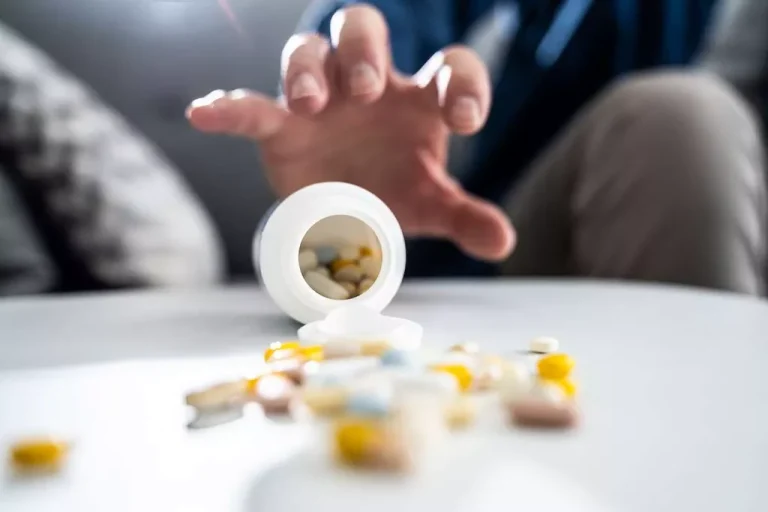
In hyponatremic patients, the amount of fluid retained by the kidneys is disproportionately greater than the amount of sodium retained. In other words, the kidneys’ ability to excrete excess fluid by way of dilute urine is impaired, and too much fluid is reabsorbed. Hyponatremia probably is the single most common electrolyte disturbance encountered in the management of patients with cirrhosis of the liver (Vaamonde 1996). Causes range from kidney stones and infections to liver disease, often intensified by excessive alcohol intake. Regular excessive drinking doubles the risk of chronic kidney disease, which doesn’t disappear over time. Even higher risks of kidney problems have been found in heavy drinkers who also smoke.
Why a person might wet the bed after drinking alcohol
Some medications, including those that doctors prescribe to treat bladder cancer, may irritate and inflame the bladder tissues. Also known as bladder pain syndrome, interstitial cystitis is a condition that causes chronic irritation of the bladder lasting 6 weeks or more without an underlying infection. Sexually transmitted infections (STIs), such as chlamydia, gonorrhea, and herpes, can all affect the urinary tract and lead to pain when urinating.

How Alcohol Affects Your Kidneys
When this happens, you could develop an acute kidney injury. This serious condition will likely need prompt medical attention. Despite the clinical importance how alcohol affects the kidneys of alcohol’s effects on the kidney, however, relatively few recent studies have been conducted to characterize them or elucidate their pathophysiology.
- Clinical studies of hypertensive patients have demonstrated that reducing alcohol intake lowers blood pressure and resuming consumption raises it.
- Heavy drinking on a regular basis has been found to double the risk for kidney disease.
- Indeed, liver transplantation is one of two options available today for treating hepatorenal syndrome.
- Formed in your kidneys — often from concentrated urine — kidney stones are hardened deposits of salts and minerals.
- Alcohol can impact many different parts of the body, but most commonly it damages the liver and can lead to a condition called cirrhosis.
- Once CKD develops, it can impact nearly every part of the body.
Are There Tests to Diagnose the Cause of Kidney Pain?
- If you or someone you love is struggling with alcohol use, knowing how it can affect kidney function and health is important.
- The treatment for alcohol-induced kidney problems depends largely on the type of kidney disease a person has sustained.
- In addition to pain, there may be reduced urination, fatigue, itching, nausea, vomiting, a loss of appetite, and confusion.
- People who cannot withstand surgery may be treated with cryosurgery (in which the tumor is destroyed with freezing) or radiofrequency ablation (in which the tumor is destroyed with electricity).
It is important to remember that someone who is an older adult or has health problems may be more susceptible to the effects of alcohol than the general population. Alcohol use can increase the risk of glomerulonephritis, a condition in which the kidney’s filtering structures become inflamed and damaged. This can be due to alcohol causing an autoimmune reaction that causes this inflammation. Alcohol can also suppress your immune system, increasing the risk of glomerulonephritis. This condition can lead to short- and long-term kidney damage.
Blood-Flow Changes
Respiratory acidosis is rare but carries an ominous prognosis when it occurs. Alcoholic patients also may develop low blood levels of phosphate by excreting too much of this ion into their urine. Typically, chronic alcoholic patients are losing up to 1.5 g/d of phosphate through their urine when they have reached the point of being sick enough to accept hospitalization. Binge drinking (usually more than four to five drinks within two hours) can raise a person’s blood alcohol to dangerous levels. This can cause a sudden drop in kidney function known as “acute kidney injury.” When this happens, dialysis is needed until a person’s kidney function returns to normal.
- When worrying about how alcohol affects the kidneys, many wonder, “Can alcohol cause kidney stones?” Dehydration can, and excessive alcohol consumption quickly induces dehydration.
- If you are being treated for a kidney-specific condition, please talk to your doctor about your alcohol intake.
- Bladder cancer occurs when cancer cells start to develop in the bladder.
- Chronic kidney disease can lead to kidney failure, which, like liver failure, can sometimes only be reversed by organ transplantation.
Because the kidneys are involved in the regulation of blood pressure, people with PKD often have hypertension (high blood pressure). Other possible symptoms include headaches, blood in the urine, a feeling of abdominal fullness, and increased abdominal size. This article describes the signs and symptoms of kidney pain and what the pain may suggest about the underlying cause. It also looks at how kidney pain is diagnosed and treated, and when it is time to seek medical treatment. More than 30% of people who are hospitalized with COVID-19 have kidney damage. Or it can cause clots that block the flow of blood to the kidneys.
Short-Term Effects of Alcohol on Kidneys

Other acid-base disturbances are possible as a result of excessive alcohol consumption. These disturbances increase the kidneys’ workload in restoring acid-base balance through formation of an acidic or basic (i.e., alkaline) urine. For instance, the opposite of respiratory alkalosis can occur when a person https://ecosoberhouse.com/article/consequences-of-drinking-and-driving-dui/ becomes extremely intoxicated. Because alcohol is a central nervous system depressant, it may slow the rate of breathing as well as reduce the brain’s respiratory center’s sensitivity to carbon dioxide levels. As a result, excess carbon dioxide accumulates, and the body’s acid level subsequently increases.
- You should do the same if you have kidney pain and are suddenly unable to urinate.
- This can cause swelling in your legs, abdomen, and other areas if severe enough.
Drinking Alcohol Affects Your Kidneys
The kidneys are two bean-shaped organs that filter out waste from your blood. The kidneys also maintain the proper balance of fluid and electrolytes in the body. Patients with alcohol-induced liver cirrhosis show a great tendency to retain salt (i.e., sodium chloride), and their urine frequently is virtually free of sodium. A progressive accumulation of extracellular fluid results, and this excess fluid is sequestered primarily in the abdominal region, where it manifests as marked swelling (i.e., ascites) (see figure).
